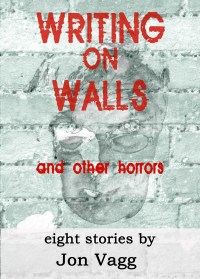Ionesco and me: the quest for meaning
Eugène Ionesco (born Eugen Ionescu, 1909-1994), was a Romanian/French playwright, known particularly for his 1948 play ‘The Bald Soprano’ (La Cantatrice Chauve).
Wikipedia describes the background to his writing of the play, which came about from his experience of learning English:
At the age of 40 he decided to learn English using the Assimil method, conscientiously copying whole sentences in order to memorize them. Re-reading them, he began to feel that he was not learning English, rather he was discovering some astonishing truths such as the fact that there are seven days in a week, that the ceiling is up and the floor is down; things which he already knew, but which suddenly struck him as being as stupefying as they were indisputably true.
This feeling only intensified with the introduction in later lessons of the characters known as “Mr. and Mrs. Smith”. To his astonishment, Mrs. Smith informed her husband that they had several children, that they lived in the vicinity of London, that their name was Smith, that Mr. Smith was a clerk, and that they had a servant, Mary, who was English like themselves. What was remarkable about Mrs. Smith, he thought, was her eminently methodical procedure in her quest for truth. For Ionesco, the clichés and truisms of the conversation primer disintegrated into wild caricature and parody with language itself disintegrating into disjointed fragments of words.
I came across this Wikipedia entry for essentially random reasons while researching something else. But it triggered a memory. A little over 20 years ago I started to learn German, using a series of workbooks with audio tapes. I ended up speaking a reasonable amount of German though these days I probably couldn’t do more than order a coffee or buy a train ticket.
The relevant thing is, though, that the workbook and tapes started with a German family – father, mother, son and daughter – who were returning to Germany after many years in Argentina. They rented an apartment, went to the shops, bought stuff and went to tourist locations. I don’t remember them having any visible means of income. There wasn’t any reason given as to why they’d returned to Germany, or what their plans were. Similarly, when their ‘uncle’ who was an ‘engineer’ arrived to visit them, it looked quite suspicious. Whose uncle was he, exactly? Since he was an engineer, that gave him licence to look at architecture, railways, and other facilities, but there was no indication of why he might have been interested in those things. Also, he had a number of packages in his luggage that weren’t easily explained.
So what was going on?
My imagination started to fill in the gaps. The parents might have been war criminals who’d emigrated to Argentina and lived a double life. Or they might have been part of some organised crime crime group, or terrorists. I was, after all, listening to the tapes only a few years after the Red Army Faction and the Baader-Meinhof group, while there were also stories circulating at that time about attempts to recover lost artworks looted by the Nazis.
So, I thought, they were returning to Germany with some nefarious scheme in mind. The fact they were a ‘family’ was just a cover, and they had to keep reminding each other of everyday details in order to keep their story consistent. The uncle was probably a minder, or handler, or courier, there to deliver items or have some part in whatever secret plot they were involved in.
And so it went on. My fantasy became far more elaborate than this and filled in many of the gaps in the language course ‘narrative’, to the point that it seemed the material in the audio tapes and workbooks were clearly there to mislead the reader about the real intentions of these characters.
This meant I learned a lot of German vocabulary that wasn’t in the language course, but ended up not paying a great deal of attention to the course itself… To this day I’m not sure whether an active imagination was a help or a hindrance. Possibly both, in equal measure but in different ways.
Unlike Ionesco I didn’t write a play about my experiences. Or even a short story. But since the Wikipedia entry triggered the memory, I might still write something about it, someday…
Anyone else have similar experiences?


You should write it. You might trigger someone else’s imagination and set off a whole new train of thought….